We need to talk about the World Bank

Narmada Devi, 63, lost her home to a World Bank (WB) funded hydropower project in the north Indian state of Uttarakhand, the Japan Times reported on May 30. In 2021, construction waste from the plant buried what she had once called home. Hers was one of over 240 households in the village that had to make room for the under-construction 444MW plant on the Alaknanda River. Officials from the project's owner, THDC India, cajoled the locals to sell their lands "involuntarily" for a compensation of one million Indian rupees each. Those who refused were forcibly taken to a police station, while their homes were turned into a pile of rubble.
Curious, I searched the World Bank's (WB) database. According to the project summary, social protection is one of its objectives, and the extent of "forced displacement" was zero percent. But Devi's saga tells an altogether different story. What's the problem, then? To find out, let's go back several years.
In 2007, WB's senior IT staffer John Kim noticed a serious anomaly of USD 2 billion in the bank's accounts. Finding no institutional avenue to report the matter, he shared it with the Forbes magazine. The bank promptly identified King as the source of the information, put him on administrative leave for two years, before firing him on Christmas Eve in 2010. Kim didn't have the option of a legal course; WB is above the jurisdiction of any court, including in the US. In a press release on July 28, 2012, it denied that the accounts glitch had ever happened.
The Washington, DC-based Government Accountability Project (GAP) represented Kim from 2009 to 2011 in an internal case for wrongful termination and received orders for his reinstatement. The bank acknowledged it had wronged Kim, but retired him instead.
In a separate incident, in May 2019, the World Bank Group launched an external review of its private funding institutions' – International Finance Corporation (IFC) and Multilateral Investment Guarantee Agency (MIGA) – environmental and social accountability. The group's – including the International Development Association (IDA) and the International Bank for Reconstruction and Development (IBRD) – sustainability policy, adopted in 2006, is clear about its environmental and social (E&S) responsibilities. Supervising the client's adherence to the policy and taking corrective action where necessary is the IFC's job.
What the review found was incriminating. In only 13 percent of the cases, remedial actions were adequate to bring the projects into compliance. For 37 percent, they were partly satisfactory, and for 50 percent, unsatisfactory. The most damaging issue it raised was an "internal approval culture" that rewarded staff for pushing through as many projects as possible, without adequate attention to environmental and social impacts.

The next big scandal at the WB surfaced more recently, in September 2021. An investigation found that senior leadership at the bank manipulated the Doing Business index under pressure from China and Saudi Arabia for the 2018 and 2020 reports, respectively. The index, first published by the World Bank in 2002, ranked countries on several aspects of business regulation. The ranks were important; a one percentage point improvement in the overall Doing Business score correlated with USD 250-500 million additional foreign direct investment (FDI). As a result, governments were tempted to manipulate them. Scores forced governments to change their policies, and governments lobbied with the bank to change the scores. WB insiders already knew about it. In January 2018, its Chief Economist Paul Romer told the Wall Street Journal that political motivations of the World Bank staff had tainted the index. Twelve days later, Romer resigned.
All these incidents over the years point to a cultural problem and only strengthen the call for the World Bank Group's reform. One of the major criticisms is its US-centric policies and practices, including the unwritten rule that Washington will select the group's president. The process of preparing the since defunct Doing Business index was heavily biased towards the Common Law that the US and the UK follow. Countries operating under a civil legal code such as France – one of the world's largest economies – had initially ranked poorly for low scores on the "registering property" and "getting credit" metrics.
Let's recap the World Bank Group's raison d'être. Its main objective is to provide funds for development to nations that cannot finance it themselves. But that has changed. Today, China is one of WB's biggest borrowers. It also holds the world's largest foreign exchange reserves, is one of the highest recipients of FDIs, enjoys some of the best borrowing terms of any sovereign borrower, and is itself the world's largest sovereign lender. Why does the WB still lend money to China? Being the world's second-largest economy, China doesn't need the bank's funds. But the bank needs to lend because China is a good borrower, and it significantly benefits the bank's balance sheet.
The idea of the World Bank and the International Monetary Fund (IMF) came into being at a global conference in July 1944 at Bretton Woods in New Hampshire. The world has moved a long way from the post-World War II situation, when the US was the only financial power. Have the Bretton Woods institutions lost relevance in today's world?
Dr Sayeed Ahmed is a consulting engineer and the CEO of Bayside Analytix, a technology-focused strategy and management consulting organisation.

 For all latest news, follow The Daily Star's Google News channel.
For all latest news, follow The Daily Star's Google News channel. 


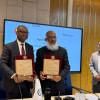
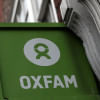
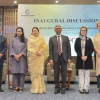
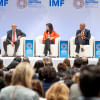
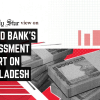


Comments